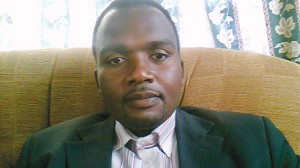
POWER in the context of business management or leadership flows from two main sources, namely, inherent ability and acquired ability.
It is imperative to observe that there is no one who is born a business person, community leader, politician, analyst, investor, councillor or manager.
All these leadership functions are learnt from the socio-political and business environment that people find themselves in.
Socioeconomic crises, resource scarcity and inadequacy of basic necessities cause leaders to emerge. In fact, all people who are currently followers have the potential to be leaders if they receive adequate leadership or management training and they are put in a congenial environment to sharpen their ability to manage or lead.
It goes without saying that genuine leadership is impossible to exercise without power or authority.
Inherent power: There is a controversy in the leadership discourse which is based on nature versus nurture explanations of management or leadership.
On the one hand, some scholars argue that genuine leaders or managers are people who are naturally gifted with organisational, coordinating and entrepreneurial skills to guide and harness the participation of other people in a certain cause, vision or project.
It is believed that such people have a genetic and psychological makeup which predisposes them to act in leading, co-ordinating or organizing capacities.
- Chamisa under fire over US$120K donation
- Mavhunga puts DeMbare into Chibuku quarterfinals
- Pension funds bet on Cabora Bassa oilfields
- Councils defy govt fire tender directive
Keep Reading
This school of thought is actually encouraged by different religions or traditions found throughout the world which fosters a belief that those who lead or manage are the chosen ones, special ones or fortune ones who are set up by nature or fortune to lead others.
It is important to observe that examples exist of leaders from antiquity who without formal education or training exhibited leadership or management skills naturally.
This may to a certain extent lend credence to the belief that leaders or managers are born (nature) instead of being trained (nurture) or produced by social and economic situations.
There seems to be a correlation between the belief that leaders are born (nature) and the extent of socio-economic development of a country or society.
Empirical evidence from numerous studies apparently indicates that the more backward a society or a community is economically and socially, the higher the likelihood that its citizens will believe that leaders are born or are chosen by gods.
As society develops economically the increased flow of knowledge and information empowers many people to believe that they can also lead and exercise authority in business and other contexts.
Knowledge is power and those who acquire knowledge acquire power. The basic fact of life is that there is something that the powerful in business and other social contexts know that those over whom the power is exercised either do not know or neglect to know.
Those who stop assuming new risks (or exploiting new opportunities) in business generally lose their power. Similarly, those who disdain learning or acquiring information from experts hinder themselves from excelling in their chosen professions.
In a world with a population of approximately 7 billion, there are many opportunities to excel and be powerful in one’s chosen field of endeavour. Nevertheless, excellence and power at times come after many years of endeavour and indefatigable toil.
Nature power: Power in business is not an end in itself; it is a means to an end. Power for power’s sake is the poison that is responsible for many conflicts, much suffering, corruption and oppression that characterise many modern societies.
In the world of business, firms exist to solve societal problems, hence the power that business institutions enjoy flows from the patronage of society.
For commercial power to be sustainable inter-generationally, business entities must be capable of addressing the changing needs of society.
Business power or monopoly power in commerce which does not solve society’s problems is both vacuous and unsustainable in the long term.
Technical power: Most powerful businesspeople are normally experts in their chosen field of specialization. Many people in society acquire and retain power by specialising in a particular profession.
There some people who acquire and maintain power by functioning as generalists in society. The software industry like the one found in the Silicon Valley in the USA is dominated by businesspeople whose professional background is software engineering or programming.
Similarly, Mr Strive Masiyiwa arguably one of the wealthiest and possibly economically powerful Zimbabwean business leaders in part owes his success in the cellular business from his expertise as an electronic engineer.
Financial power: People with the right skills, knowledge and ideas usually find it easy to entice people with financial power to buy into their project or vision.
Economically useful resources have a tendency of gravitating towards those with a greater potential of solving societal problems through feasible projects and ventures.
In any given day, there are trillions of US dollars that flow through global financial markets searching for business opportunities that promise a fair return.
Since there is generally an inverse relationship between the level of risk and the rate of return, this implies that those business people who live in high risk economic systems have to craft convincing business proposals to elicit funding from the best sources of financing.
Ian Ndlovu is an economist based at the National University of Science and Technology skilled in data analysis using SPSS, Gretl, Stata, Eviews and Microsoft Excel software packages. His research interests cover business, development, economic and e-commerce issues. He writes in his personal capacity.










